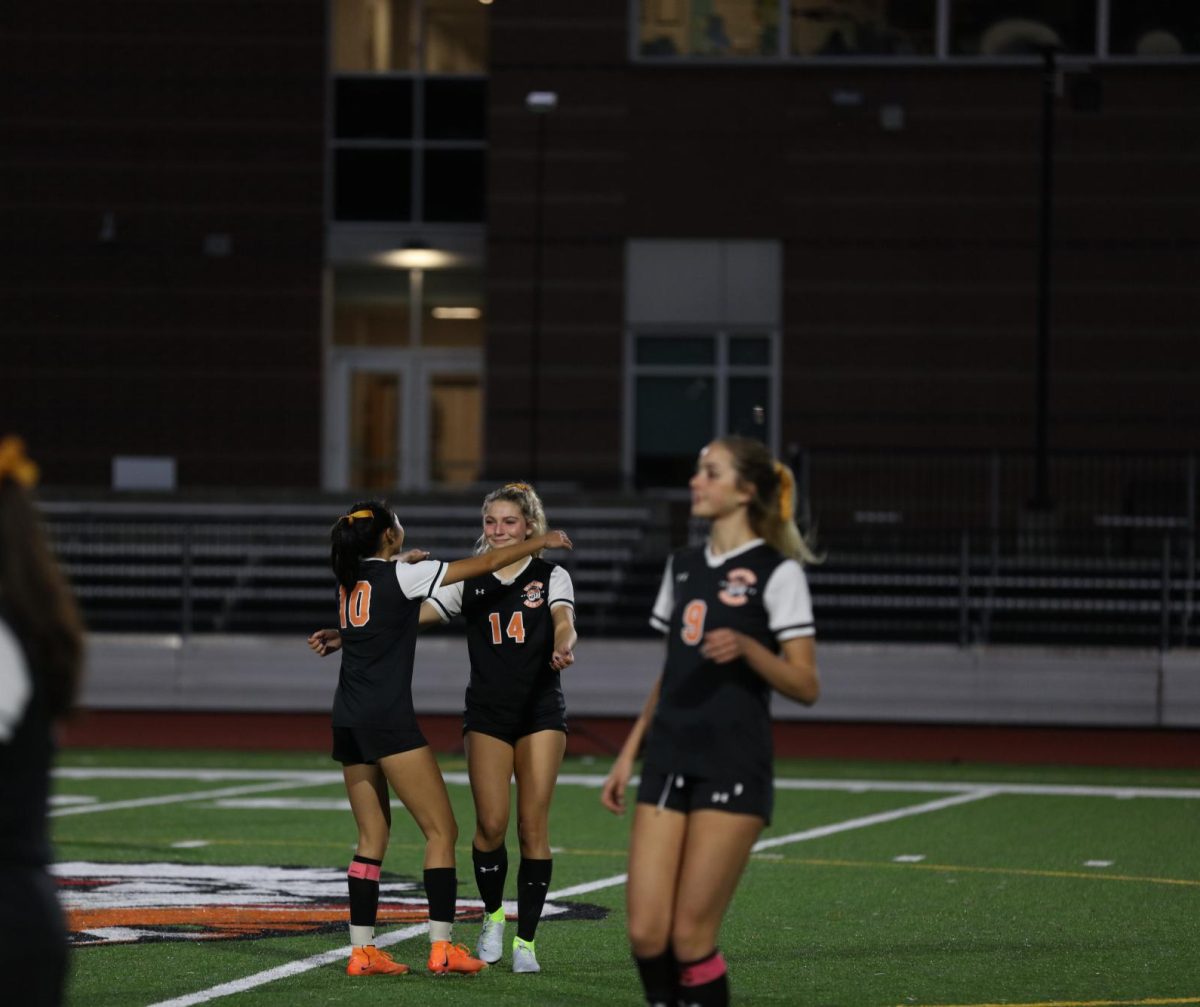 [/media-credit]
[/media-credit]
- Senior Madeleine Aquilina discusses sex education with leadership students F-block in 473.
by Perrin Stein
Senior Madeleine Aquilina, an officer of the Gay-Straight Alliance, and leadership in a diverse society students discussed sex education and its implications for LGBTQ youth yesterday F-block in 473 as a part of Transgender Bisexual Gay Lesbian Awareness Day.
Aquilina began the discussion by explaining two common methods of sex education. There is abstinence, which is teaching students not to have sex until marriage, she said. The counter approach, comprehensive sexual education, “aims to provide a complete message about sex by going beyond pregnancy prevention to talk about contraception and to decrease the onset of sexual activity,” she said.
In addition, Aquilina explained a movement called sex-positive. “This is an attitude toward human sexuality that advocates for safer sex and makes no distinction between sexualities,” she said.
With these definitions in mind, the leadership students read aloud two articles.
One was a blog post, from the Planned Parenthood Advocates of Arizona website by Serena Freewomyn, about the negative effects abstinence has on youth, especially LGBTQ youth.
The second article came from the Boston Globe, and is entitled “The Sleepover: teenagers and sex.” This piece profiles assistant professor of sociology at UMass Amherst Amy Schalet, focusing specifically on her book Not Under My Roof: Parents, Teens, and the Culture of Sex, which looks at the different ways in which American and Dutch parents approach sex education.
Through interviews with parents and educators, Schalet reaches the conclusion in her book that the Dutch mindset toward sex is much more productive and has much safer outcomes than the American mindset.
Using these articles and the definitions of different types of sex education as a frame for discussion, leadership students and the leadership teachers talked about the negative aspects of sex education and about the effect of sex education on GLBTQ youth.
“Sex education often lacks discussion of the emotions and the relationships involved,” senior Katya Hamler said.
English teacher and leadership teacher Peter Goddard pointed out that when people talk about sex prevention, “it makes it sound like sex is a bad thing, when in fact, it is pleasurable.”
From there, students discussed sex education in the context of GLBTQ youth. “Part of the issue with abstinence is that the curriculum doesn’t support gay people,” senior Veronica Ingham said.
Senior Sam Kane-Gerard agreed, saying “people don’t know much about gay sex, which is why it’s important to talk and learn about these things.”













































